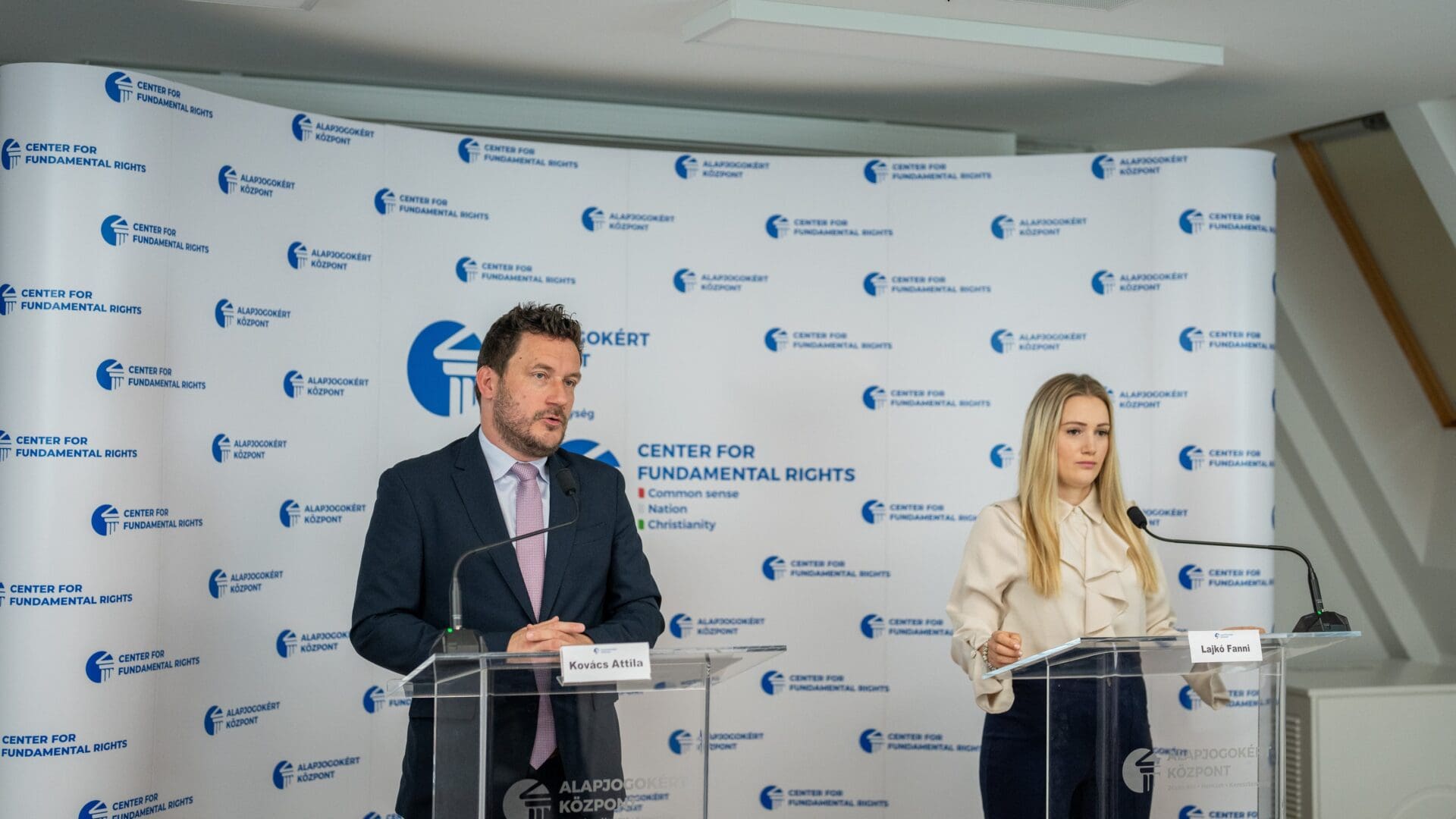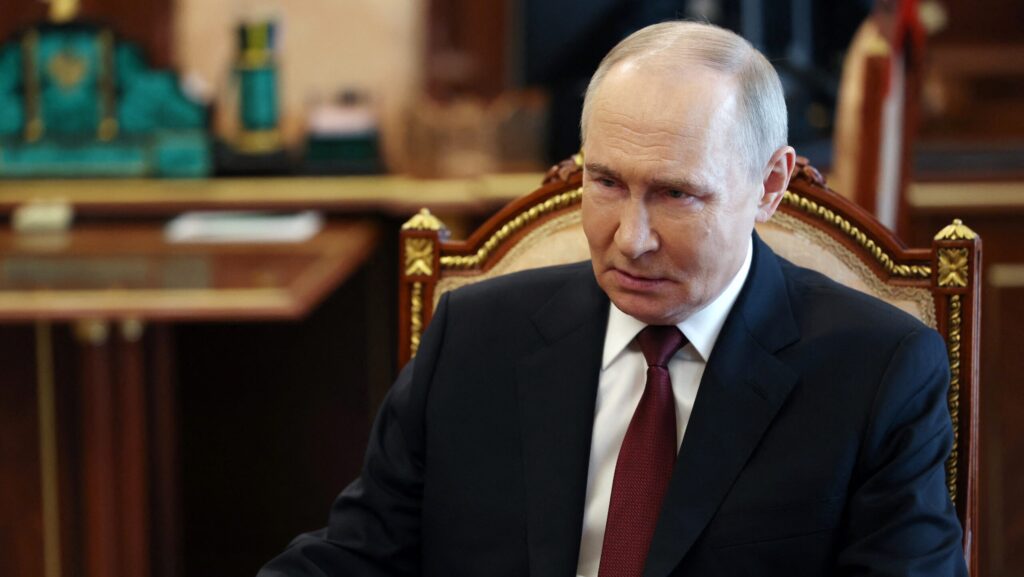On Friday, 24 May the Center for Fundamental Rights held a press conference assessing the Thursday Eurovision debate between lead candidates for the Commission presidency. At the event, the Institute’s Director of EU Research, Attila Kovács, and analyst Fanni Lajkó shared their thoughts on the debate.
Attila Kovács stressed that the debate demonstrated Brussels’ unquestionably pro-war stance. ‘Without exception, the speakers argued that Europe, the European Union, and the EU Member States should play a greater role in arms transfers to and the financial support of Ukraine. They believe that Ukraine should be supported by all means to achieve a victory—and this is a key word— that will bring the European continent, the European Union, and the NATO member states
closer to escalation, closer to a possible armed conflict with the nuclear power in our neighbourhood, Russia,’
the research director pointed out.
Attila Kovács stated that the warmongering of European leaders is completely contrary to what European voters want, which is peace. He lamented that it is very sad that few European political forces are willing to publicly speak out about the need for peace on the European continent. The research director then recalled the most scandalous pro-war proposals of recent weeks, including the statement by Manfred Weber, President of the European People’s Party, recommending the mandatory conscription of European troops, and the continued warmongering of French President Emmanuel Macron.
‘It is up to the citizens of Europe to decide whether they want this warmongering originating from the left, centrist, liberal, and green factions of the European political spectrum,’ he underlined. An interesting aspect of this debate, as previously reported by Hungarian Conservative, is that the two right-wing political groups, the European Conservatives and Reformists (ECR) and Identity and Democracy (ID), were not present.
‘They chose not to participate not only because they believe it is more important for the member states to decide collectively on the next EU leaders rather than the European political parties (Editor’s note: ECR and ID do not support the so called Spitzenkandidat system) but also because they disagree and refuse to align themselves with the theatrical spectacle of the pro-war, progressive European left,’ Attila Kovács emphasized.
Attila Kovács remarked that there are few ideas more federalist and centralized in Europe than the lead candidate system. He highlighted that the Spitzenkandidat system shifts the decision-making authority—specifically, the election of the President of the European Commission—from the sovereign member states and their political leaders, who represent independent national values and interests, to the European Parliament. Kovács noted that the system had already failed in 2019, and he doubted that the lead candidate of the winning political group would become the next President of the Commission after the elections.
Finally, the research director emphasized the key issues in the elections: war or peace, the new European migration pact, and the rejection of gender ideology.
Fanni Lajkó, echoing Attila Kovács, underscored that the serious consequence of blind federalist, progressive, and pro-war ambitions is prioritizing Ukraine over the EU’s internal stability. ‘The European Union has forgotten the lessons of our past and replaced diplomacy with destruction,’ she stressed.
According to Fanni Lajkó, one notable point in the debate was that Terry Reintke, the Green candidate, did not consider war, migration, or the loss of EU competitiveness as the greatest threats to Europe. Instead, she highlighted
Reintke identified the rise of the right as the primary concern.
Furthermore, Reintke proposed imposing sanctions on political groups that collaborate with right-wing factions such as the ECR and ID. ‘This highlights a paradox of the left: they advocate punishing political dissent in the name of upholding democratic values.’
The analyst criticized the current EU leadership under Ursula von der Leyen for misleading citizens. She argued that instead of focusing on strengthening the EU’s security and developing a European defence system, Brussels has been unthinkingly diverting resources to support Ukraine, overlooking the economic strain this places on member states. ‘Hungary champions national sovereignty and peace, and will continue to uphold this pro-peace stance, even if it is a minority view in Brussels,’ Lajkó stressed. Additionally, she noted that dissent is often penalized in Brussels, citing Hungary’s punitive treatment for its positions against pro-gender and pro-migration policies.
According to Fanni Lajkó, two paths lie ahead: succumbing to pro-war views or rising up to return to the European Union’s original and rightful mission as a peace project. ‘This will be decided on 9 June,’ she concluded.
Read more on the upcoming European elections:








